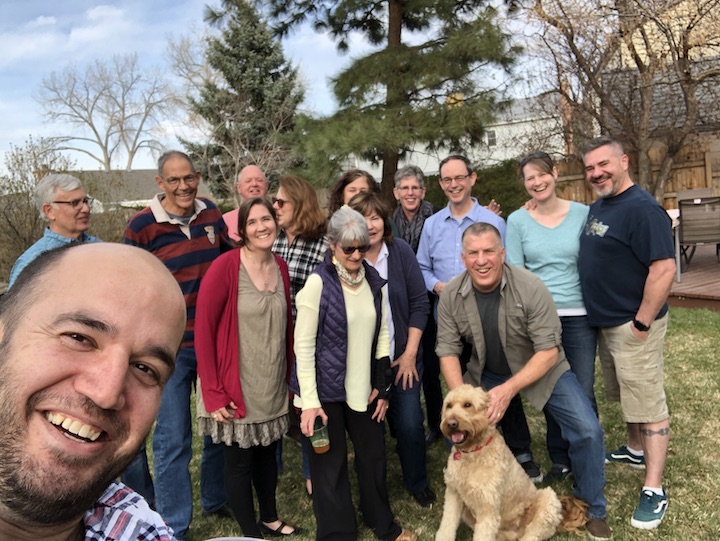COMMON MENTAL HEALTH ISSUES
I recently watched the movie Concussion for the second time. The movie is about how Dr. Bennet Omalu uncovers the truth about brain damage in football players who suffer repeated concussions in the course of normal play. Dr. Omalu discovers that some former NFL players are going insane because their brains are disintegrating from the repeated concussions they have experienced playing football. Over the last several years there has been a lot of research on traumatic brain injury, and it isn’t just football players who experience changes to the brain, and their personality, because of a violent blow to the head. In the US more than 200,000 cases of TBI (traumatic brain injury) are reported every year. Based on the severity of the injury there are a variety of different treatments.
about brain damage in football players who suffer repeated concussions in the course of normal play. Dr. Omalu discovers that some former NFL players are going insane because their brains are disintegrating from the repeated concussions they have experienced playing football. Over the last several years there has been a lot of research on traumatic brain injury, and it isn’t just football players who experience changes to the brain, and their personality, because of a violent blow to the head. In the US more than 200,000 cases of TBI (traumatic brain injury) are reported every year. Based on the severity of the injury there are a variety of different treatments.
In addition to TBI, there are many people in the US who experience post-traumatic stress disorder (PTSD). This is a condition of persistent mental and emotional stress occurring because of a traumatic event. People who suffer from PTSD experience the inability to sleep well, constant vivid recall of the experience, hypervigilance, and dulled responses to others and to the outside world. As with TBI, there are a variety of treatments, some of which are more effective than others. There is much about PTSD which is unknown, but it is real.
There are thousands of people in the US, and around the world, who suffer from TBI, PTSD, and many other mental disorders. I am so thankful for medications and trained professionals who can help people who suffer from these injuries and diseases. Such people are no more responsible for their illness than cancer victims. Bad stuff happens to people all the time and it isn’t their fault.
However, for many of us, there are strategies we can implement to maintain and improve our mental health without resorting to drugs or trained professionals. These strategies are not secrets; they are in books, podcasts, YouTube videos, classes at your local community college, and of course, our happiness conversations on Wednesday evenings at FE Warren. Although these strategies are not secrets, they do take some courage and faith to implement.
TAKING ACTION
About two weeks ago I had a couple of small triggering events, and I became discouraged and a bit sad. (Debbie would say that I was becoming a bit depressed. However, she is not a trained professional and her diagnosis should not be taken too seriously). After several days in a “funk,” I decided that if I wanted to feel better, and I did, it was on me to do something about it. So, I took action.
 The first thing I did was list all the things in my life that I love. I listed Debbie, Willy Nelson, Waylon, and the many airmen (by name) who we know who join us for Saturday breakfast, Wednesday conversations, and dinner and Bible study on Sunday night. I also reflected on how much I love the work I do, both with the airmen and as a teacher in the high schools. I feel blessed to be involved in work which feels so challenging and important. Finally, I listed all the things in my life which I experience every day which make life beautiful. I thought about the supermarket and the variety of good food that is readily available, a nice home with central heating, a car which provides reliable transportation, Amazon, which provides an unlimited assortment of books which I can download in seconds, my library, which contains many good books to read again, a smart television, and good beer. After making this list and just thinking about all the good things in my life I was feeling better already.
The first thing I did was list all the things in my life that I love. I listed Debbie, Willy Nelson, Waylon, and the many airmen (by name) who we know who join us for Saturday breakfast, Wednesday conversations, and dinner and Bible study on Sunday night. I also reflected on how much I love the work I do, both with the airmen and as a teacher in the high schools. I feel blessed to be involved in work which feels so challenging and important. Finally, I listed all the things in my life which I experience every day which make life beautiful. I thought about the supermarket and the variety of good food that is readily available, a nice home with central heating, a car which provides reliable transportation, Amazon, which provides an unlimited assortment of books which I can download in seconds, my library, which contains many good books to read again, a smart television, and good beer. After making this list and just thinking about all the good things in my life I was feeling better already.
SIMPLE STRATEGIES THAT WORK
But I wanted more. I know the most important pillar of mental health is relationships, so I thought of close friends who I wanted (needed) to see. I cleared my schedule and reached out by text. I set up a couple of meetings

with people who know me well. (Most of you reading this were on the list, but I wanted face to face meetings, so my text was limited only to a few folks in Cheyenne and Denver).
Admitting weakness to my good friends took some courage. It seems to me that the cultural expectation is to be strong and capable and, if you are going to admit weakness, you should do it anonymously with a trained counselor. (I am a big fan of trained counselors and the confidential environment that their office provides. However, I just wanted to confide in close friends who would understand). I am happy to report that these simple strategies worked for me. Implementing them took time, effort, and humility. It didn’t happen all at once, but over the course of a few days I began to feel much better. These strategies may not always work for me and someday I may have to turn to professionals and medication. But I do fear that far too many people turn to professionals and medication before trying mindfulness, and good friends.
Today I pray that you are experiencing good mental health. I pray that you see all the good in the world and you are glad that you are part of it. I also pray that if you are NOT experiencing joy and gratitude you would seek to improve your situation by listing things that are good, being honest with good friends, talking to a life coach, or seeking professional help. Life is too short to spend time not enjoying the gift of just being alive.